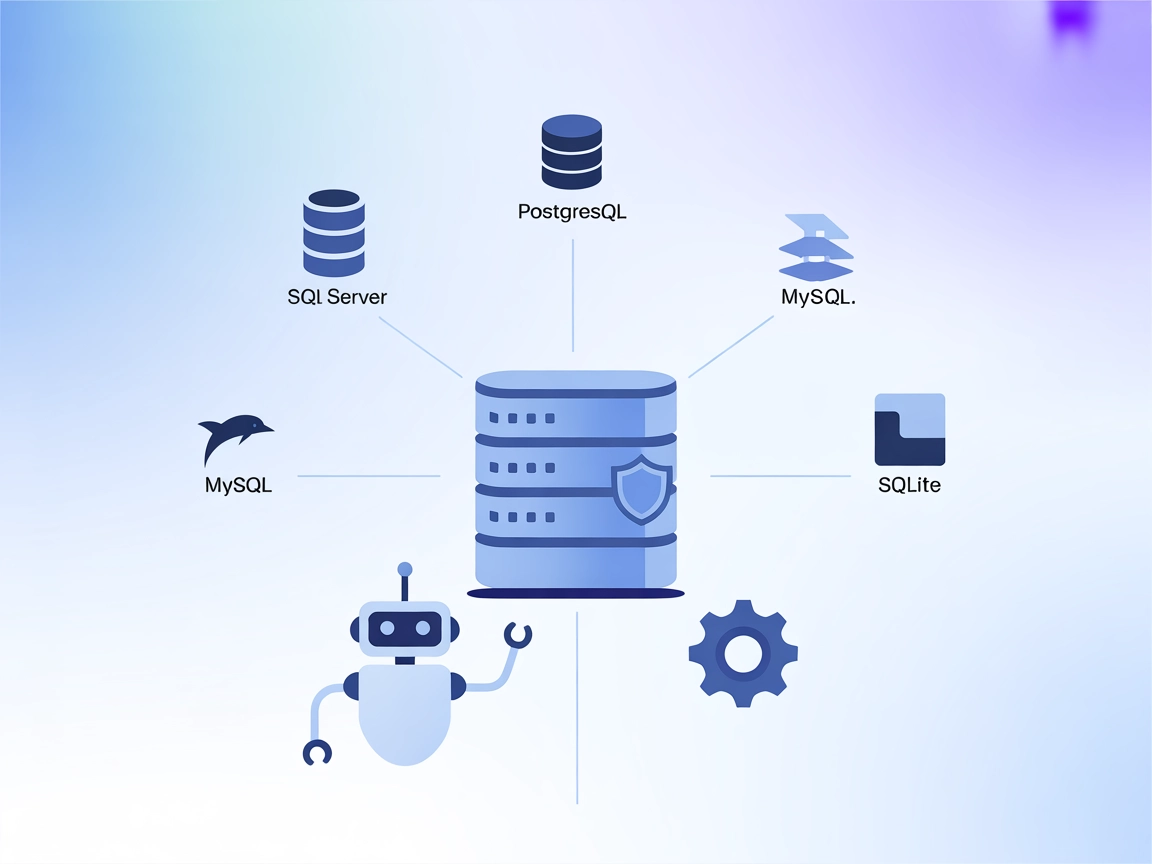
Model Context Protocol (MCP) Server
The Model Context Protocol (MCP) Server bridges AI assistants with external data sources, APIs, and services, enabling streamlined integration of complex workfl...

Connect AI assistants to SingleStore with the MCP Server—enabling conversational database management, advanced querying, and operational automation in FlowHunt workflows.
FlowHunt provides an additional security layer between your internal systems and AI tools, giving you granular control over which tools are accessible from your MCP servers. MCP servers hosted in our infrastructure can be seamlessly integrated with FlowHunt's chatbot as well as popular AI platforms like ChatGPT, Claude, and various AI editors.
The SingleStore MCP Server is a Model Context Protocol (MCP) server designed to bridge AI assistants with the SingleStore Management API and related services. By adhering to the MCP standard, this server enables seamless integration, allowing AI clients like Claude Desktop, Cursor, and others to interact with SingleStore databases using natural language. Its primary function is to facilitate complex operations—such as database queries, management tasks, and service interactions—via a unified, standardized protocol. This enhances developer workflows by making it easier to access, manipulate, and manage data within SingleStore environments directly from AI-driven tools, thereby streamlining development, data analysis, and operational tasks.
No prompt templates are explicitly mentioned in the repository.
No explicit resources are listed in the repository documentation or files.
No explicit tools are listed in the documentation or within files referenced (such as server.py or similar).
uvx singlestore-mcp-server init --api-key <SINGLESTORE_API_KEY>
init command may auto-locate it).{
"mcpServers": {
"singlestore": {
"command": "uvx",
"args": ["singlestore-mcp-server", "serve"]
}
}
}
Set API keys using environment variables:
{
"mcpServers": {
"singlestore": {
"command": "uvx",
"args": ["singlestore-mcp-server", "serve"],
"env": {
"SINGLESTORE_API_KEY": "your_api_key_here"
},
"inputs": {}
}
}
}
uvx singlestore-mcp-server init --api-key <SINGLESTORE_API_KEY> --client=claude
init command usually locates it).{
"mcpServers": {
"singlestore": {
"command": "uvx",
"args": ["singlestore-mcp-server", "serve"]
}
}
}
{
"mcpServers": {
"singlestore": {
"command": "uvx",
"args": ["singlestore-mcp-server", "serve"],
"env": {
"SINGLESTORE_API_KEY": "your_api_key_here"
},
"inputs": {}
}
}
}
uvx singlestore-mcp-server init --api-key <SINGLESTORE_API_KEY> --client=cursor
{
"mcpServers": {
"singlestore": {
"command": "uvx",
"args": ["singlestore-mcp-server", "serve"]
}
}
}
{
"mcpServers": {
"singlestore": {
"command": "uvx",
"args": ["singlestore-mcp-server", "serve"],
"env": {
"SINGLESTORE_API_KEY": "your_api_key_here"
},
"inputs": {}
}
}
}
uvx singlestore-mcp-server init --api-key <SINGLESTORE_API_KEY> --client=cline
{
"mcpServers": {
"singlestore": {
"command": "uvx",
"args": ["singlestore-mcp-server", "serve"]
}
}
}
{
"mcpServers": {
"singlestore": {
"command": "uvx",
"args": ["singlestore-mcp-server", "serve"],
"env": {
"SINGLESTORE_API_KEY": "your_api_key_here"
},
"inputs": {}
}
}
}
Using MCP in FlowHunt
To integrate MCP servers into your FlowHunt workflow, start by adding the MCP component to your flow and connecting it to your AI agent:

Click on the MCP component to open the configuration panel. In the system MCP configuration section, insert your MCP server details using this JSON format:
{
"singlestore": {
"transport": "streamable_http",
"url": "https://yourmcpserver.example/pathtothemcp/url"
}
}
Once configured, the AI agent is now able to use this MCP as a tool with access to all its functions and capabilities. Remember to change “singlestore” to whatever the actual name of your MCP server is and replace the URL with your own MCP server URL.
| Section | Availability | Details/Notes |
|---|---|---|
| Overview | ✅ | Overview and purpose described in README and project description. |
| List of Prompts | ⛔ | No prompt templates documented. |
| List of Resources | ⛔ | No explicit MCP resources listed. |
| List of Tools | ⛔ | No explicit tools listed or described in documentation. |
| Securing API Keys | ✅ | API key configuration using environment variables shown in README. |
| Sampling Support (less important in evaluation) | ⛔ | No mention of sampling support. |
I would rate this MCP server a 5/10. The project is well-licensed, has some community traction, and setup is well-documented for multiple platforms. However, the lack of detailed documentation on prompts, resources, and available tools limits its usefulness and discoverability for new users.
| Has a LICENSE | ✅ (MIT) |
|---|---|
| Has at least one tool | ⛔ |
| Number of Forks | 6 |
| Number of Stars | 21 |
The SingleStore MCP Server is a bridge between AI assistants and SingleStore’s Management API, enabling natural language management, querying, and monitoring of SingleStore databases through a standardized protocol.
You can create, modify, and delete databases, orchestrate services and clusters, execute complex SQL queries, automate environment configuration, and monitor operational health—all via AI clients like FlowHunt, Claude Desktop, or Cursor.
Always set your API keys as environment variables in your MCP server configuration. Do not store sensitive credentials directly in your flow or codebase. See the setup section for configuration examples.
Add the MCP component to your flow, open its panel, and insert your MCP configuration in JSON format. Example: { "singlestore": { "transport": "streamable_http", "url": "https://yourmcpserver.example/pathtothemcp/url" } }. Replace with your actual server URL.
No explicit prompt templates or tool descriptions are documented for this MCP server. It provides a direct protocol-based interface to SingleStore services.
Empower your AI workflows—integrate SingleStore database management into your FlowHunt flows with the SingleStore MCP Server for effortless, secure, and scalable data operations.

The Model Context Protocol (MCP) Server bridges AI assistants with external data sources, APIs, and services, enabling streamlined integration of complex workfl...

The MCP Database Server enables secure, programmatic access to popular databases like SQLite, SQL Server, PostgreSQL, and MySQL for AI assistants and automation...

The MongoDB MCP Server enables seamless integration between AI assistants and MongoDB databases, allowing for direct database management, query automation, and ...
Cookie Consent
We use cookies to enhance your browsing experience and analyze our traffic. See our privacy policy.